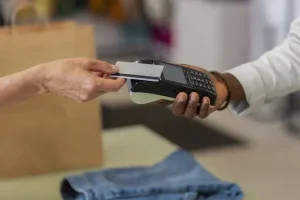Platform Provider Liability
Why Dialer Companies can’t look the other way when it comes to TCPA and TSR Compliance
The FCC’s Telephone Consumer Protection Act (TCPA) was enacted by Congress in 1991 to address marketing practices that were perceived as invasive to consumer privacy. Mirroring the spirit and language of the law, the FTC’s Telemarketing Sales Rule (TSR) was enacted in 1995. Since that time professional plaintiffs and their attorneys have not only aggressively pursued marketers, call centers, and their affiliates, but have continued to push the boundaries by pursuing legal action against dialing platforms. While theories of vicarious liability have at times fallen flat[1], a new rash of actions making the case that dialing platform providers have direct liability has emerged. With the average TCPA settlement costing $6,600,000 in 2018, this is a trend that cannot be ignored.[2]
| “A PROVIDER OF AUTO-DIALING SERVICES CANNOT BLITHELY SIT BACK AND BLAME CUSTOMERS FOR ANY TCPA VIOLATIONS THAT RESULT FROM THEIR USE OF SERVICE” |
Responsibility for compliance with these laws falls on the parties who have “made the call” or “initiated the pre-recorded message.” However, in recent cases, some courts have been persuaded by the argument that both marketers and dialing platforms make or initiate calls and are both legally responsible for ensuring TCPA and TSR compliance. Further, the FCC has additionally outlined that “text broadcasters can be liable for TCPA violations” based on an analysis of the “totality of the facts and circumstances surrounding the placing of a particular call.[3]” Specifically, in its 2015 Omnibus TCPA Order, the FCC explained that a calling or texting platform provider may face primary liability under the TCPA as the “caller” based on a case-by-case analysis, and that factors when making its determination will include whether a platform “has knowingly allowed its client(s) to use that platform for unlawful purposes.” Of course, “knowingly” is a highly subjective term.
While Congress has declined to define “make a call” or “initiate a pre-recorded message,” the FCC has made clear that, taking the totality of the circumstances into account, they will look at (1) who took the steps necessary to physically place the call and (2) whether another entity was so involved in placing the call as to be deemed to have made or initiated the call considering the goals and purposes of the TCPA.[4] Applying these factors, the FCC and FTC have found dialing platform providers directly liable for violations of the TCPA and TSR.
- In 2013, the FTC ordered a dialing platform provider to pay a $75,000 penalty, review all current pre-recorded calls within 120 days to ensure no illegal robocalls were being made, and to terminate any customers who were using the dialing platform to make illegal calls. The court found that the company was liable because they provided substantial assistance to customers who were using the platform to place illegal calls and that the provider consciously avoided knowing that pre-recorded messages sent using their platform did not comply with the TSR.[5]
- In 2017, echoing previous guidance, the FCC fined a dialing platform provider $2.9 million for allowing robocallers to use its platform to make millions of illegal robocalls to mobile phones without express prior consent from consumers. This fine was levied despite the fact that clients of the dialing platform were required to sign into terms of service that required clients to comply with all federal regulations governing pre-recorded messages, stating “nothing in the statute or our rules suggest that the consent requirement may be overcome by a general statement from third parties that they will not violate the law.”[6]
Further, there are numerous current cases proceeding through the courts due to judges dismissing the argument that a dialing platform should not be held liable for the actions of its customers. While nothing is final in these cases, this is an obvious trend that wasn’t prevalent just a few years ago:
- In 2017, the Southern District of Washington reiterated the sentiments that there is “no blanket rule immunizing cloud-based service providers that transmit third-party content from TCPA liability.” The court found that a platform provider’s knowledge that it could be used to automatically send thousands of text messages that violate the TCPA and failure to have their customers certify to TCPA compliance were enough to have the case survive a motion to dismiss.[7]
- In 2018, the Southern District of West Virginia declined to dismiss a case against TWO dialing platform providers, finding that there were sufficient allegations that the dialing platforms knowingly allowed customers to use autodialing software for unlawful purposes and may have had right of control over the illegal conduct in question.[8]
- In 2019, the District Court of Nevada continued this trend by finding that text message platform providers could be held liable for TCPA violations. The court declined to dismiss a TCPA claim for a provider, finding that the platform took necessary steps to “send” automated text messages and that this may be enough to find that the platform had initiated the contact.[9]
- In 2019, a Wisconsin court failed to dismiss a case against a dialing platform provider that allowed users to send autodialed calls and prerecorded messages. Customers were able to upload a prerecorded message and phone number list into the system and launch auto-dialing campaigns themselves. The company owner believed that the language in the terms of use which advised customers to comply with all federal and state laws absolved him of liability for his customers’ actions. Ultimately, the court emphasized that the 2015 FCC ruling made it clear that “a provider of auto-dialing services cannot blithely sit back and blame his customers for any TCPA violations that result from their use of his service.” [10] Again, another court declining to dismiss a case against a platform provider.
While several additional cases against dialing platform providers are still making their way through the courts, it is clear from FCC and FTC guidance, and the posture of some district courts, that dialing platform providers must take steps to ensure that their users are not operating in a non-compliant manner. Failure to do so may result in costly regulatory or legal actions and, of course, legal fees. Platform provider liability can be reduced or eliminated by having a combination of strong terms and conditions that outline TCPA/TSR compliance, warrants of compliance, and a strong customer monitoring and vetting program in place.
[1] See Linlor v. Five9, Inc. (2017) at https://www.leagle.com/decision/infdco20171130e19
[2] https://www.instituteforlegalreform.com/resource/tcpa-lawsuits-are-how-expensive
[3] https://www.leagle.com/decision/infdco20190214f21
[4] See In Matter of the Rules and Regulations Implementing the Telephone Consumer Protection Act of 1991 (1995) at https://www.fcc.gov/document/matter-rules-and-regulations-implementing-telephone-consumer-0
[5] See United States v. Skyy Consulting, Inc. at https://www.ftc.gov/sites/default/files/documents/cases/2013/05/130514callfirecmpt.pdf
[6] See In Matter of Dialing Services, LLC (2017) at https://www.fcc.gov/document/fcc-releases-robocall-platform-fine
[7] Wick v. Twilio, Inc. (2017) at https://www.leagle.com/decision/infdco20170713g47
[8] Hurley v. Messer (2018) at https://www.leagle.com/decision/infdco20181011g28
[9] Bauman v. Saxe (2019) at https://www.leagle.com/decision/infdco20190214f21
[10] https://www.tcpadefenseforce.com/tcpa-law-blog/tcpa-autodialing-platform-liability-seventh-circuit-court
Finding a credible expert with the appropriate background, expertise, and credentials can be difficult. CompliancePoint is here to help.





